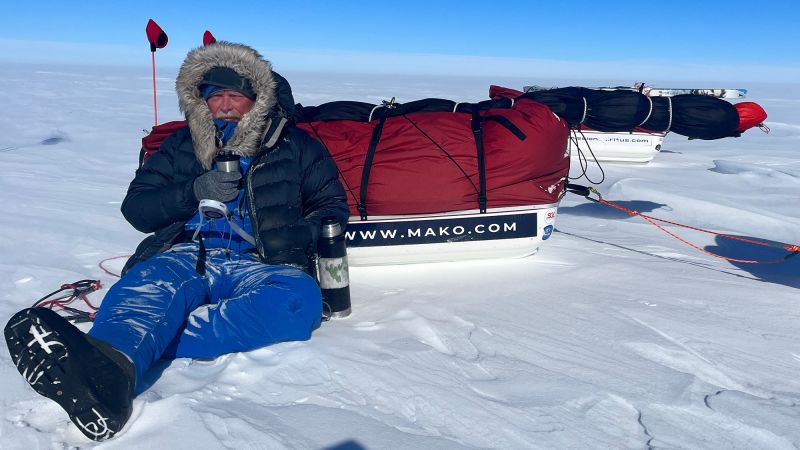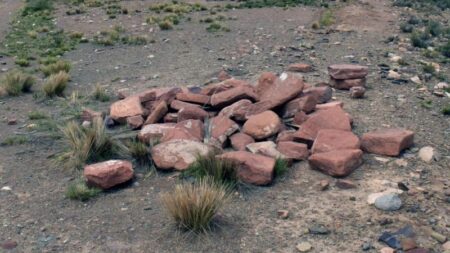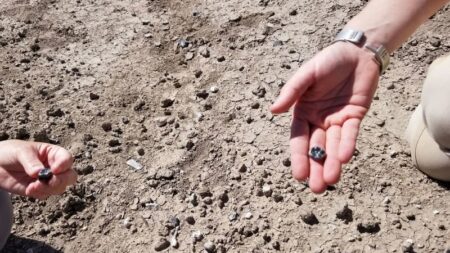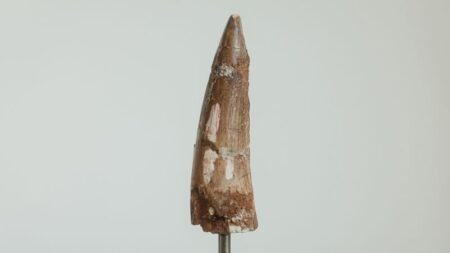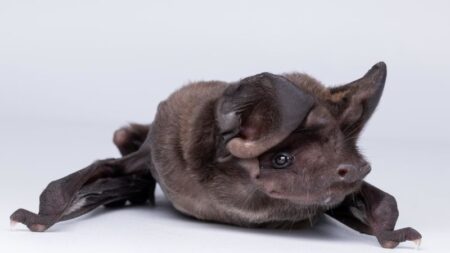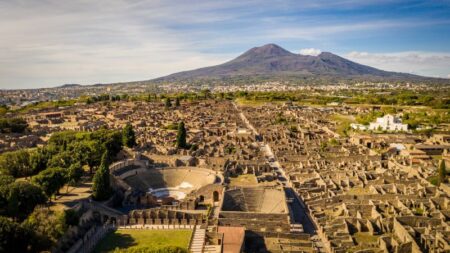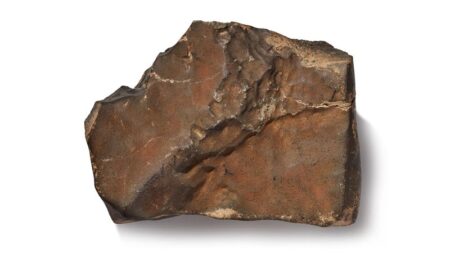In the frigid and isolated reaches of Antarctica, Alan Chambers, a renowned polar explorer, embarked on a significant mission to investigate an emerging environmental crisis. Joined by former Royal Marine Dave Thomas, Chambers undertook an arduous journey spanning 715 miles (1,151 kilometers), traveling completely unassisted from Hercules Inlet to the geographic South Pole. The expedition, which lasted two months, was not just a test of physical endurance but also an endeavor aimed at investigating a profound ecological concern—microplastics and nanoplastics—along with their potential global distribution.
Chambers and Thomas towed sledges laden with essential supplies and equipment, alongside additional sleds designated for snow samples. Their quest prompted them to confront fierce winds, extreme cold, and disorienting blizzards. Chambers elaborated on the intricate preparation involved, explaining how he designed a specialized sledge tailored for the task. Each night, despite the grueling conditions, he would meticulously scrape snow at temperatures as low as minus 35 degrees Celsius to fill containers for logging and photography.
The expedition wrapped up in January 2024 and was part of a collaborative effort with climate scientists from Columbia University, marking Chambers’ first foray into extensive climate research. The partnership is designed to map the global spread of plastic pollution in some of the earth’s most remote environments. Chambers aims to examine seven distinct regions worldwide, where he plans to collect diverse samples of earth, sand, snow, water, and permafrost for analysis. The ongoing studies will shed light on the ubiquitous nature of plastic pollution, which infiltrates even the most untouched ecosystems.
Microplastics, defined as small plastic particles measuring less than 5 millimeters, pose a significant threat to numerous life forms—including humans. Research indicates that these particles find their way into the digestive systems of hundreds of species, potentially interfering with biological processes. Alarmingly, a study revealed that plastic concentrations within human brains have surged by approximately 50% over the past decade. Further enlightening the potential health risks, ongoing research is investigating the implications of nanoplastic exposure—particles even smaller than microplastics—on reproductive health and cancer.
Chambers’ partnership with Columbia University is instrumental in determining the effects of plastic pollution within pristine areas. Their ambition lies in analyzing the collected samples to deliver evidence crucial for shaping environmental policies and promoting systemic changes. As Chambers articulated, each mission is not just a physical challenge, but a scientific inquiry aimed at combating plastic pollution.
Chambers’ contributions exceed the physical realm, as he has raised over £14 million (approximately $18.8 million) for various charitable causes, including cancer research, over his career. However, his aspirations for this new mission—titled Mission Spiritus—are imbued with a desire to effect change that transcends immediate impacts, aiming for lasting influence well beyond his lifetime. The project drew its inspiration from a conversation with a wealthy individual passionate about generating renewable energy from the atmosphere, igniting Chambers’ vision to incorporate scientific research into his explorations.
Embarking on collaborative efforts with experts like Maureen Raymo from Columbia University, who has been friends with Chambers since they first met on an expedition in 2017, the mission evolved to encompass a scientific alliance focused on crucial environmental issues. The challenges posed by Antarctica had previously deterred extensive research due to logistics, budget constraints, and the extreme conditions inherent to the region. Chambers’ unique background afforded him the opportunity to facilitate this research without the typical overhead associated with conventional scientific expeditions.
With profound success, initial analyses of the samples collected by Chambers unveiled shocking findings, revealing traces of plastic in the middle of Antarctica, indicative of broader atmospheric contamination. This revelation sparked concern over the possible atmospheric transportation of microplastics, raising questions about the environmental fate of such pollutants.
Continuing the mission, Chambers has ventured into various ecosystems , highlighting a future agenda filled with equally daunting challenges. His next objectives include sampling the Faroe Islands, the Atacama Desert, and multiple other significant locations over the coming years, each step designed to enhance awareness of the pervasive presence of plastics in untouched environments.
Chambers’ intertwining of adventure and scientific discovery serves not only to spotlight the plastic pollution crisis but also empowers communities to take action, resonating with his belief that “we’re just the Earth’s gardeners,” hoping to inspire and mobilize collective efforts toward meaningful environmental stewardship.






